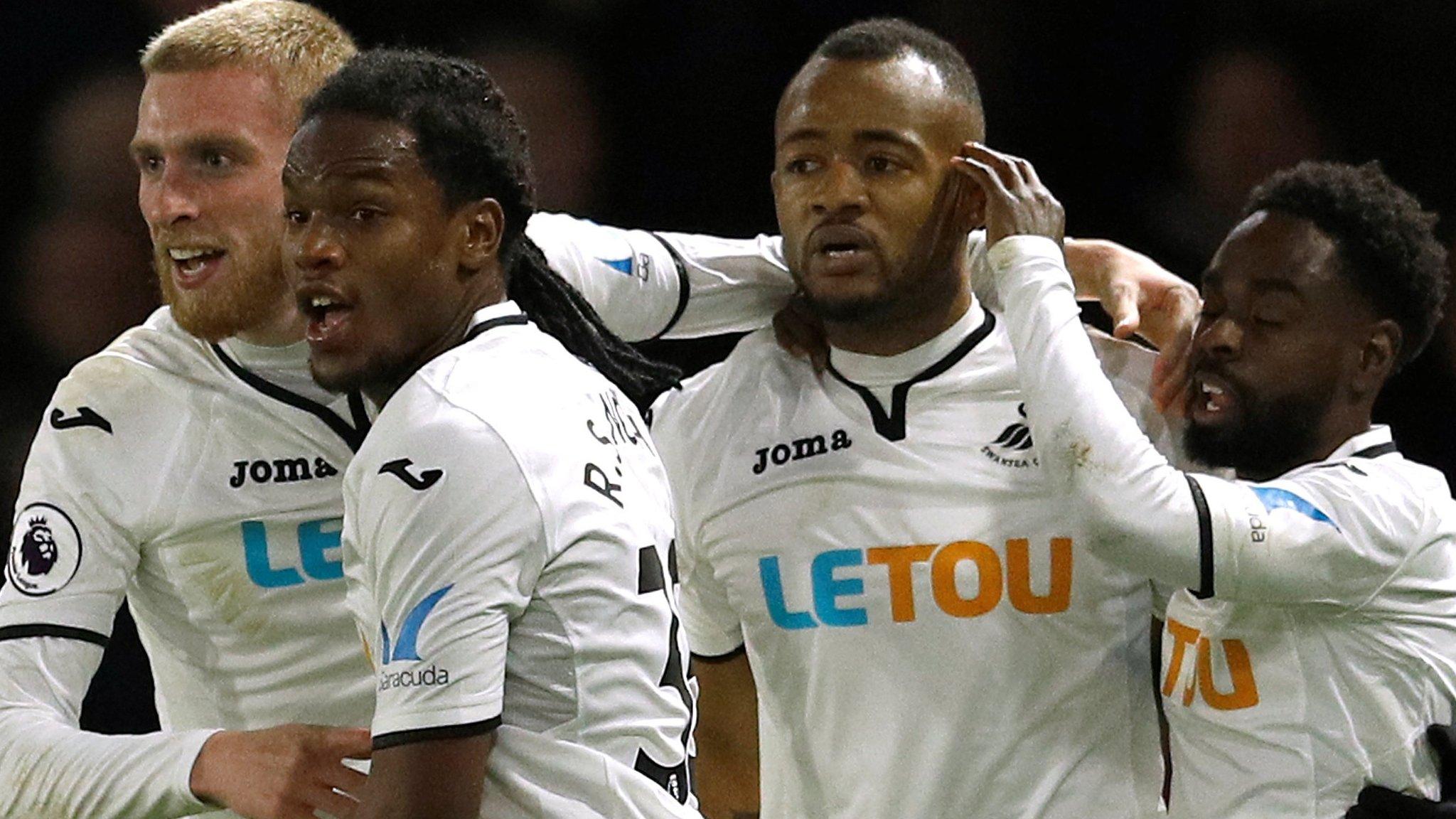Huw Jenkins: Former shareholder Rob Davies backs Swansea chairman
- Published
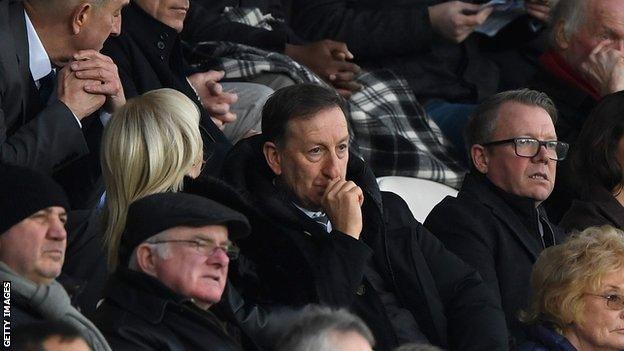
Huw Jenkins (centre) has been Swansea City chairman since 2002
Ex-Swansea City shareholder Rob Davies has backed chairman Huw Jenkins against Supporters Trust calls for his exit.
The dispute centres on the club's sale to an American consortium in July 2016 and subsequent poor on-field form.
The Trust has maintained it was excluded from preliminary negotiations and has called for Jenkins' removal.
But Davies claims the Trust "excluded themselves" from the sale after turning down initial approaches over selling of their 21.1% holding.
He accused the Trust of attempting to discredit the club and Jenkins.
"This unpleasant and unnecessary situation has divided the club when above all else it is unity and total support that is required," said Davies.
"There is fault everywhere but the Trust are as much to blame as anybody. They exist to support the club not destroy it."
The Swansea City Supporters Alliance, whose spokesman Phil Sumbler was previously chairman of the Swansea City Supports Trust, disputes Davies claims.
"The evidence made public so far shows that the Trust wrote immediately to all shareholders as soon as they were told about the sale, despite the fact that the Trust was told several months too late," he said in a statement.
Davies sold his 10.5% shareholding when the consortium - which includes American Office actress Mindy Kaling - bought 68% of the club's shares.
He acquired his shares after contributing a total of £100,000 to saving the club, external in 2002. They were worth £9m when he sold them.
Since the sale, Swansea City have struggled to avoid relegation from the Premier League in 2016-17 and are currently bottom of the table.
Swans host Tottenham Hotspur on Tuesday, 2 January after Saturday's 2-1 win at Watford - the first game under new boss Carlos Carvalhal, Swansea's fifth permanent manager in just over two years.
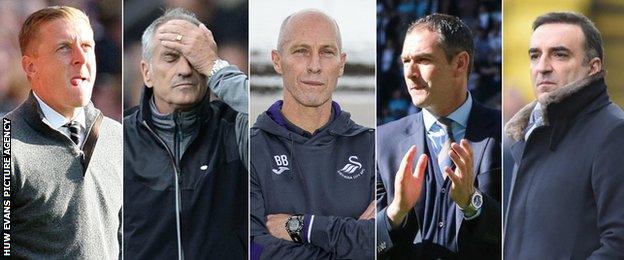
The last five Swansea City managers (from left): Garry Monk, Francesco Guidolin, Bob Bradley, Paul Clement and Carlos Carvalhal
Swansea takeover - the disputed timeline
The Trust was alerted in March 2016 to a possible deal, but co-owner Jason Levien has said talks started in 2015.
A consortium headed by Levien and fellow American Steve Kaplan bought a controlling stake in July 2016.
Levien has previously said the stakeholders who sold their shares, such as Jenkins and Davies, initially indicated there was no shareholders' agreement in place.
The Trust issued its latest statement, external on Sunday, 31 December saying it had "no choice but to correct a number of incorrect statements made by Mr Jenkins".
While the two parties remain at odds over the timeline of the sale, Jenkins did concede in his previous interview that: "If they [the Trust] say they didn't have [enough] time, or that the four months wasn't enough, or we didn't have clarity about how we wanted to go forward, I agree, but there's a difference."
Davies' take on the dispute
Aberdare-born businessman Davies said: "For more than three years before the sale took place, the Trust had repeatedly confirmed in writing that they 'will not sell under any circumstances'.
"Nobody could force the Trust to sell, it was entirely their choice to do so or not.
"Given their absolute confirmation that they would never sell negotiations quite properly proceeded without them. There is no obligation to keep shareholders informed.
"After months of negotiation an agreement was reached and a first draft of that agreement was produced by the Purchasers on 13 March, 2016.
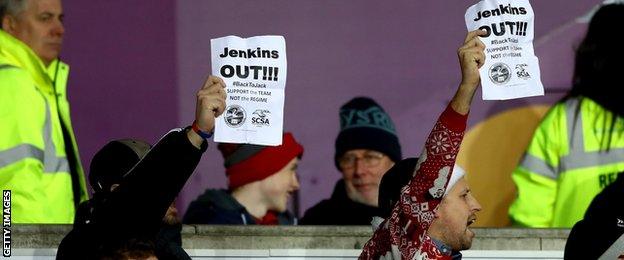
Huw Jenkins has become the focus of protests by some Swansea City fans as they struggle near the bottom of the Premier League
"The draft agreement was immediately circulated to all shareholders (including the Trust)
"The Trust refused to engage officially.
"Despite this refusal the Trust was encouraged by other shareholders to sell their shares. They chose not to, consistent with their previous stated policy
"Quite simply the Trust refused to sell and the buyers proceeded to purchase all the other shares they could. The buyers would have preferred to purchase all the shares.
"Since the sale a very small minority of the Trust have continued to wrongly portray the sale as excluding them. The opposite is true, they excluded themselves
"The Trust, I believe made, a mistake. I suspect they now know that and are trying to pass the blame on to other completely innocent parties.
"If we are to survive we all need to pull together. There is no justification whatsoever for all this rubbish.
"We should quite simply all be supporting our club in our fight against relegation."
- Published2 January 2018
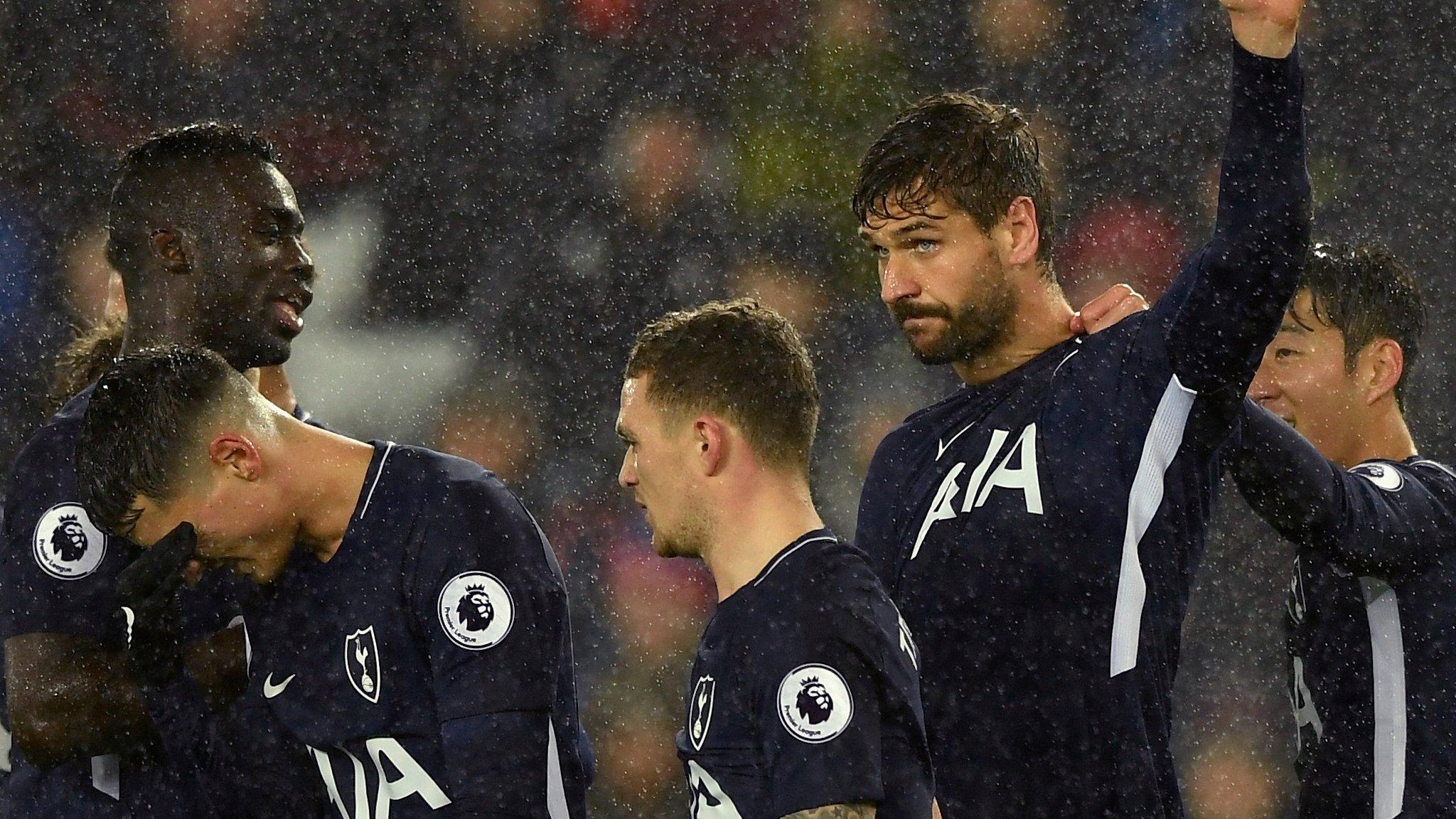
- Published31 December 2017
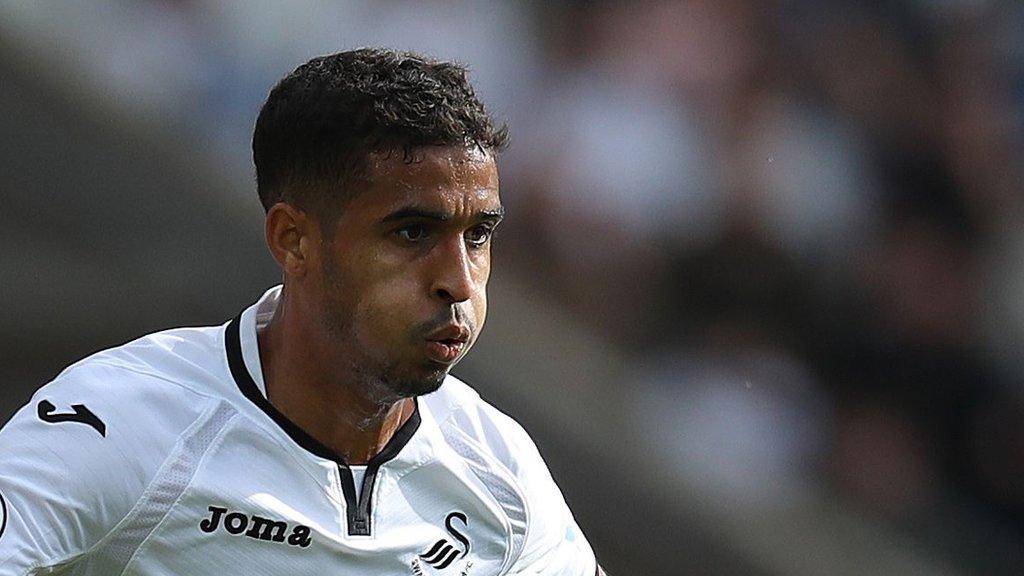
- Published30 December 2017
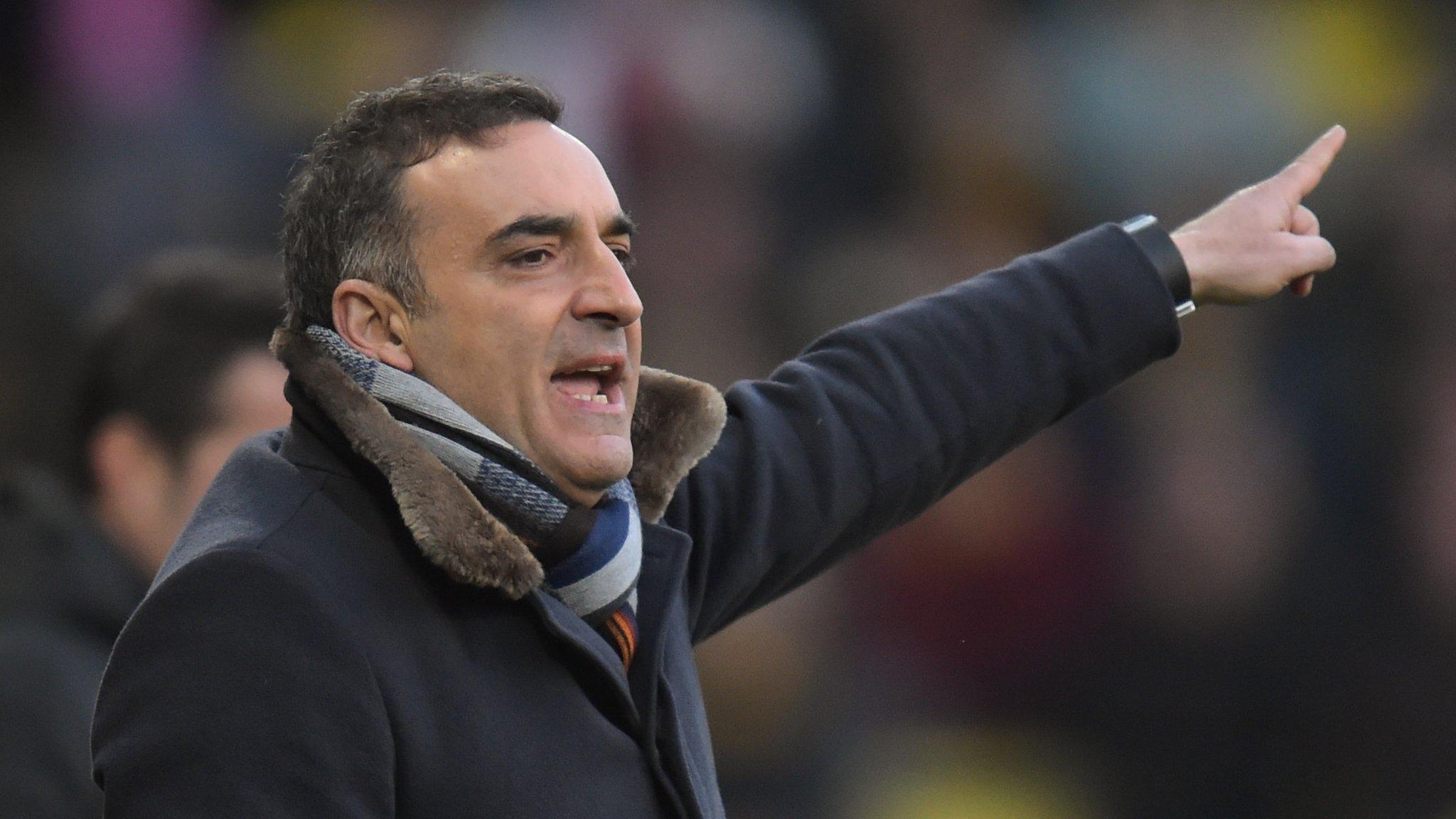
- Published30 December 2017
